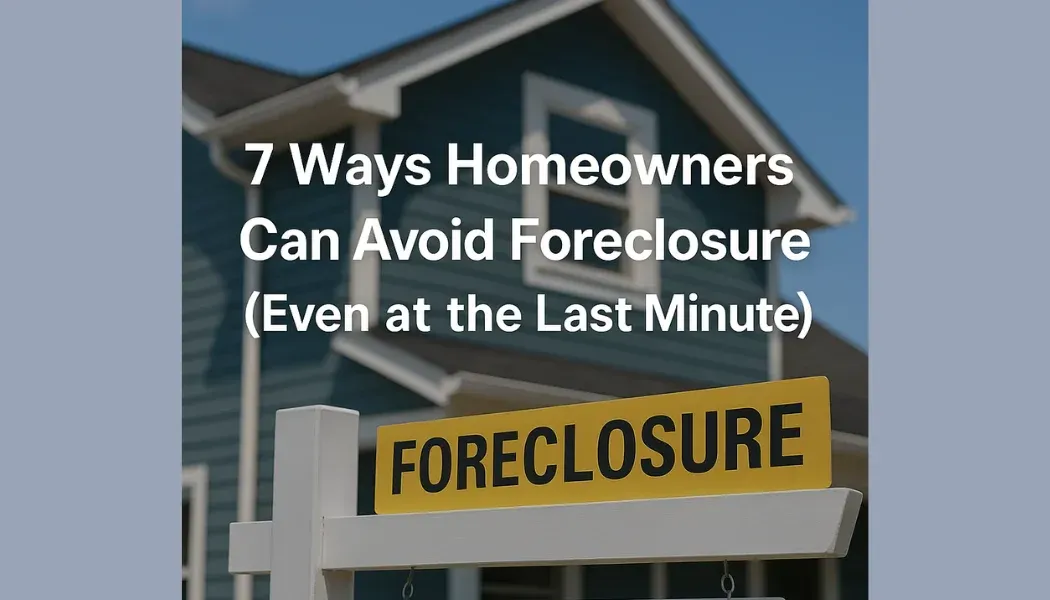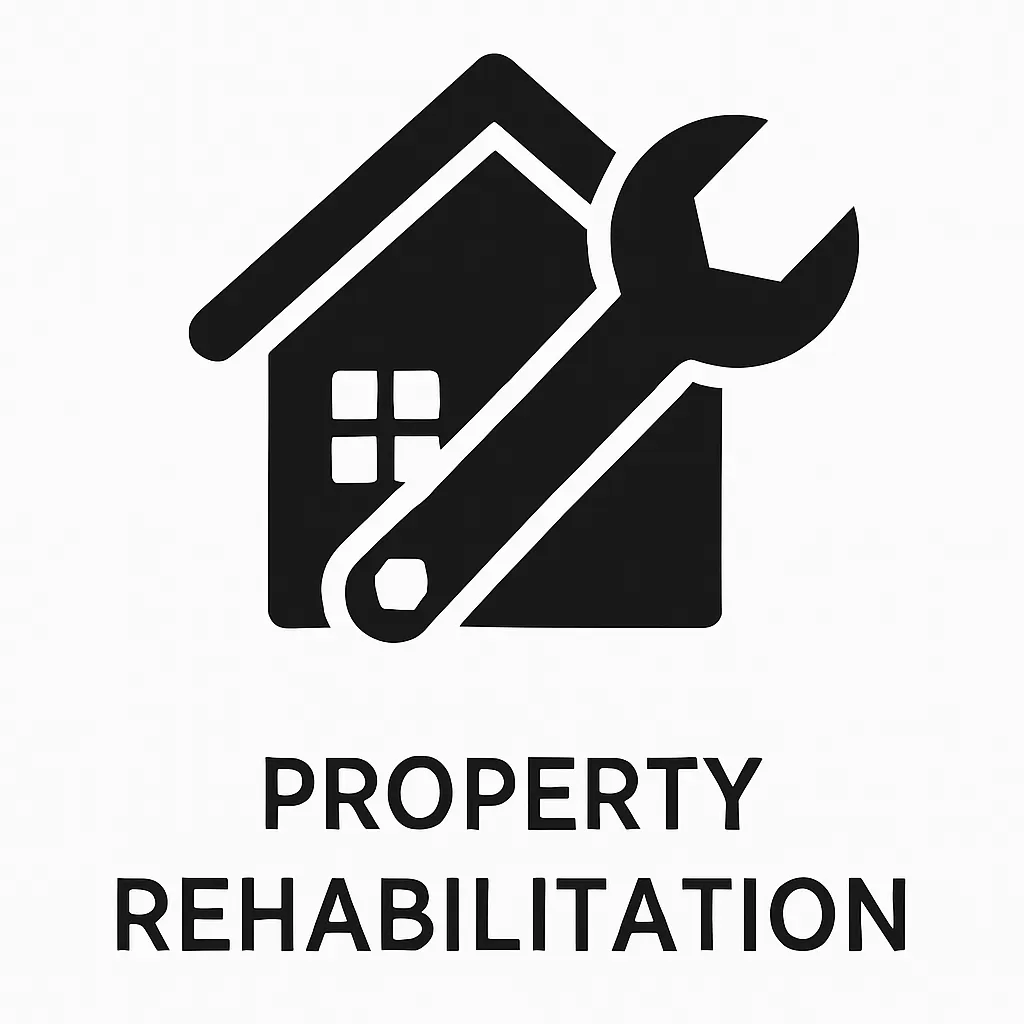See Our Latest Blogs
Explore expert insights, tips, and updates in our latest property investment blog posts.

7 Ways Homeowners Can Avoid Foreclosure (Even at the Last Minute)
7 Ways Homeowners Can Avoid Foreclosure (Even at the Last Minute)
When foreclosure is looming, it’s easy to feel hopeless. The stress, uncertainty, and fear of losing your home can cloud even the best intentions. But homeowners facing foreclosure are not without options. While every situation is unique, there are a number of strategies available that can help people avoid foreclosure — even when time is running out.
Below are seven potential routes homeowners can explore. Please note: this article is for educational purposes only. We are not foreclosure consultants, and homeowners should consult licensed professionals for legal or financial advice.
1. Loan Modification
One of the first and most direct options is requesting a loan modification from your lender. This typically involves adjusting the terms of your existing mortgage — such as reducing the interest rate, extending the repayment period, or rolling overdue payments into the loan balance.
Many lenders offer loss mitigation programs, especially if you contact them early. However, success depends on your income, financial hardship, and documentation. The key is to act before a foreclosure sale date is set
2. Reinstatement of the Loan
If you’ve fallen behind on payments but recently acquired funds (from a bonus, settlement, or loan from a friend/family member), reinstating the mortgage might be an option. This means catching up on all missed payments, late fees, and legal costs in one lump sum.
While this may not be feasible for everyone, it can be the quickest way to halt foreclosure proceedings and retain ownership of the property.
3. Forbearance Agreement
A forbearance allows you to pause or reduce your mortgage payments temporarily, often for a few months. During this time, the lender agrees not to proceed with foreclosure, giving you breathing room to recover financially.
However, you’ll eventually need to repay the missed payments. This option is most effective when your financial hardship is temporary — such as a medical emergency or job loss.
4. Filing for Bankruptcy
While often seen as a last resort, Chapter 13 bankruptcy can stop a foreclosure in its tracks through a legal process called an “automatic stay.” This allows homeowners to restructure debt under court protection and repay mortgage arrears over a 3–5 year plan.
That said, filing for bankruptcy has long-term credit consequences and should only be considered after consulting with an experienced bankruptcy attorney.
5. Renting the Home to a Third Party
If you're unable to keep up with payments but want to retain ownership, renting out the property could generate enough income to cover the mortgage. In some cases, homeowners have found a friend, family member, or investor willing to help by renting the property, helping avoid foreclosure while transitioning to a more stable financial situation.
This is a complex option that depends on market rents, condition of the home, and timing.
6. Selling the Home (Traditional or Short Sale)
When it becomes clear that staying in the home is no longer financially viable, selling the property may be the most practical route.
If the home has equity, selling it traditionally on the MLS can allow the homeowner to pay off the mortgage and possibly walk away with cash. If the mortgage exceeds the home’s value, a short sale may be an option — with lender approval — allowing the home to be sold for less than the owed balance.
This route can protect your credit better than a foreclosure and provide a fresh start.
7. Redemption Period (If Applicable)
Some states offer a redemption period, allowing homeowners to reclaim their property even after a foreclosure auction has taken place. During this time, the homeowner can either repay the outstanding balance or sell the home to another buyer.
This window is short — typically 10 days in states like North Carolina — but it can be a last chance to regain control of the property.
Final Thoughts
Foreclosure is not the end of the road. While the timeline is often short, especially in non-judicial states, informed homeowners can take decisive action and explore multiple strategies to avoid losing their home.
If you or someone you know is facing foreclosure, don’t wait. Begin researching your options, contact your lender, and seek professional guidance. Even when things look bleak, there is always a path forward — and that path begins with understanding your options.
Disclosure: This content is for informational purposes only. We do not provide legal, financial, or foreclosure consulting services. Always consult with a licensed professional.
Our Promise
We are committed to providing every homeowner with a fair, honest, and transparent experience. At F. Liu, Trustee & Co., your trust is our top priority — and your satisfaction is our promise.
Corporate Office Location
13809 Research Blvd Suite# 500
Austin, TX 78750
Copyright © F. Liu, Trustee & Co . All rights reserved

